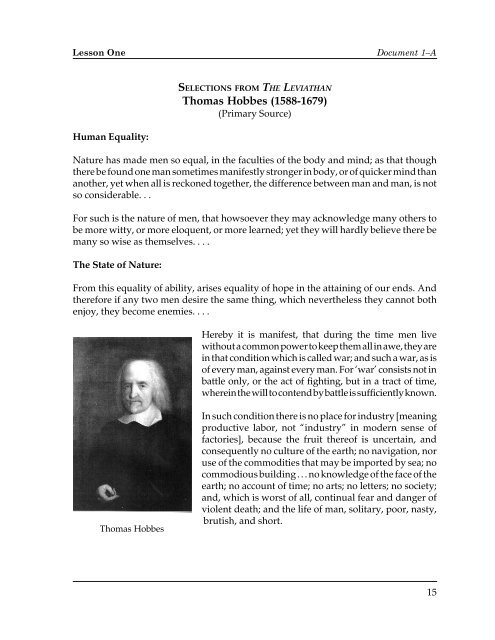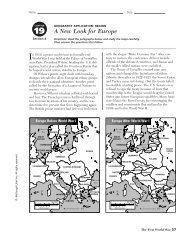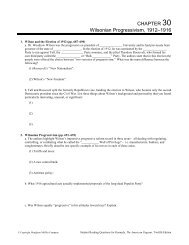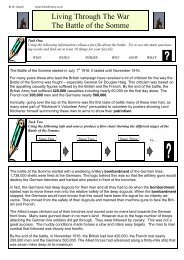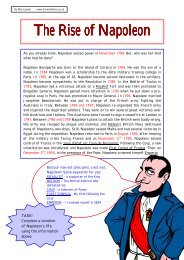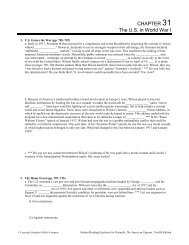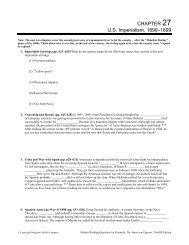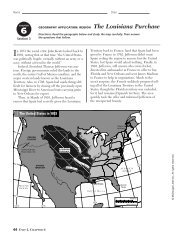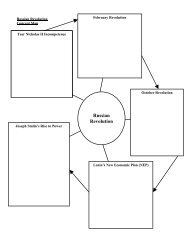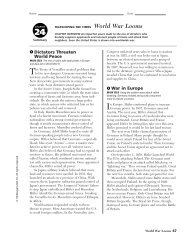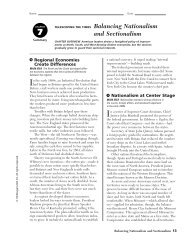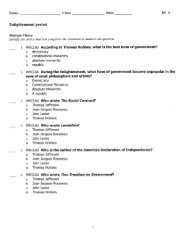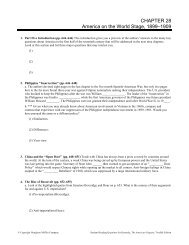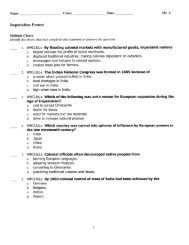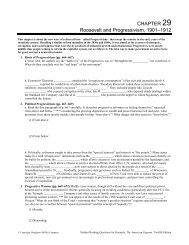Enlightenment ONe Hobbes Locke.pdf
Enlightenment ONe Hobbes Locke.pdf
Enlightenment ONe Hobbes Locke.pdf
You also want an ePaper? Increase the reach of your titles
YUMPU automatically turns print PDFs into web optimized ePapers that Google loves.
Lesson One Document 1–AHuman Equality:SELECTIONS FROM THE LEVIATHANThomas <strong>Hobbes</strong> (1588-1679)(Primary Source)Nature has made men so equal, in the faculties of the body and mind; as that thoughthere be found one man sometimes manifestly stronger in body, or of quicker mind thananother, yet when all is reckoned together, the difference between man and man, is notso considerable. . .For such is the nature of men, that howsoever they may acknowledge many others tobe more witty, or more eloquent, or more learned; yet they will hardly believe there bemany so wise as themselves. . . .The State of Nature:From this equality of ability, arises equality of hope in the attaining of our ends. Andtherefore if any two men desire the same thing, which nevertheless they cannot bothenjoy, they become enemies. . . .Hereby it is manifest, that during the time men livewithout a common power to keep them all in awe, they arein that condition which is called war; and such a war, as isof every man, against every man. For ‘war’ consists not inbattle only, or the act of fighting, but in a tract of time,wherein the will to contend by battle is sufficiently known.Thomas <strong>Hobbes</strong>In such condition there is no place for industry [meaningproductive labor, not “industry” in modern sense offactories], because the fruit thereof is uncertain, andconsequently no culture of the earth; no navigation, noruse of the commodities that may be imported by sea; nocommodious building . . . no knowledge of the face of theearth; no account of time; no arts; no letters; no society;and, which is worst of all, continual fear and danger ofviolent death; and the life of man, solitary, poor, nasty,brutish, and short.15
Lesson One Document 1–BThe State of NatureSELECTIONS FROM OF CIVIL GOVERNMENTJohn <strong>Locke</strong> (1632–1704)(Primary Source)To understand political power aright, we must consider what state all men are naturallyin, and that is, a state of perfect freedom to order their actions and dispose of theirpossessions and persons, as they think fit, within the bounds of the law of nature;without asking leave, or depending upon the will of any other man. . . .The state of nature has a law of nature to govern it, which obliges every one: and reason,which is that law, teaches all mankind, that being all equal and independent, no oneought to harm another in his life, health, liberty, or possessions: for men [are] all theworkmanship of one omnipotent and infinitely wise Maker; all the servants of onesovereign master, sent into the world by his order, and about his business. . . .ReasonMen living together according to reason, without a common superior on earth, withauthority to judge between them, is properly the state of nature.God, who hath given the world to men in common,hath also given them reason to make use ofit to the best advantage of life, and convenience.The earth, and all that is therein, is given to menfor the support and comfort of their being.Nothing was made by God for man to spoil ordestroy. And thus, considering the plenty ofnatural provision there was a long time in theworld, and the few spenders . . . there could bethen little room for quarrels or contentions aboutproperty so established.John <strong>Locke</strong>16


